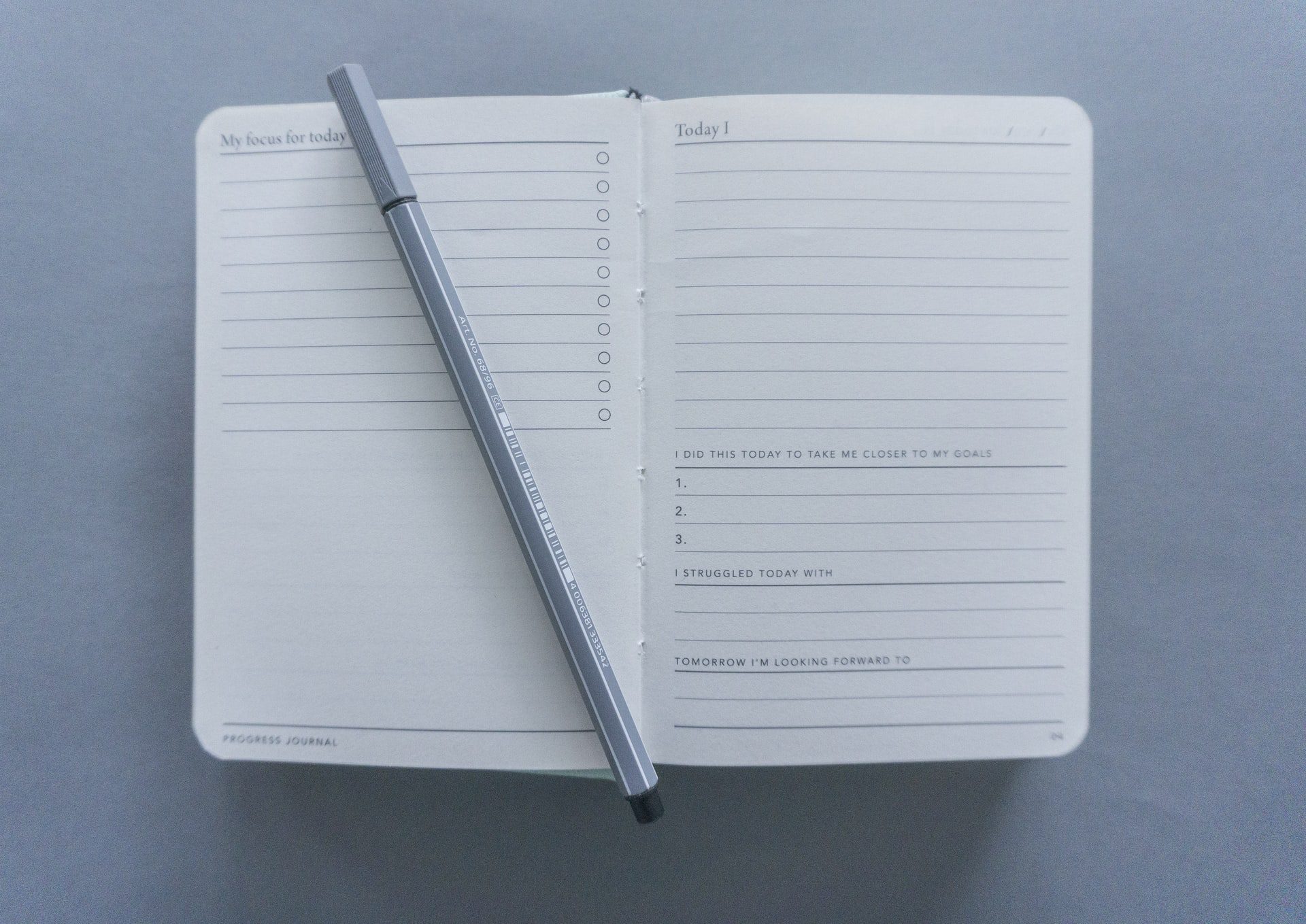Effective time management is essential for being productive and getting work done, whether it’s in the comfort of your rental home, modern office or a vintage cafe. But when it comes to digital nomads, time management takes a whole new level. We need to not only meet deadlines and complete projects but set aside time for travelling and getting to know the city we are living in. It can be exciting and exhausting at the same time.
Luckily, as digital nomads, we have the freedom to choose where to work and when to work. While this comes with more freedom and more personal time, it also puts pressure on us to manage our schedule, avoid procrastination and complete assignments before the deadline. Here are some time management techniques that have proven to be effective in helping modern professionals be more productive and reach their full potential.
1. Stick to your routines

If you are a digital nomad, chances are you travel quite frequently. Being always on the move makes it harder to stick to routines. But it can be a life-saver when it comes to managing your time.
Whether you are one of those people who wake up early, or you take your time, the way you spend the morning sets the tone for the rest of the day. That’s why it’s important to have a morning ritual that boosts your energy and productivity and sets you up for a successful day.
A major part of an effective morning routine is to wake up at the same time every day. This is especially important for digital nomads because we have to keep that work-life balance everyone is talking about. Having a nutritious breakfast plays a huge role in a morning routine and gives us the energy to start the day. Some people try to fit in a small exercise here and there. It does not have to be full-on cardio training, a slow yoga session can be enough to move your body. Others prefer journaling as it helps to clear your mind and prepare for a busy day. Some people make their “to-do lists” and get it out of the way.
Routines don’t end with the morning coffee. You can create working routines that would increase your productivity. For example, you can have a routine of checking your emails first thing in the morning or taking a walk during a lunch break. Routines can be 5 minutes long or they can last hours, the important thing is they should be comfortable for you.
2. Practice self-discipline
It’s a known fact that the more motivated we are, the better we do our work. Motivation is an important driving force that helps us think creatively, learn new things, take risks, overcome challenges and achieve our goals. But motivation comes and goes very easily. One day we will find ourselves full of excitement, ready to dive into a new project and the second day it’s hard to get through the simplest tasks such as replying to emails. Most of us cannot afford to only work when we are motivated and take a break on days we are not. This is where the discipline comes in and saves the day.
Self-discipline is especially important when it comes to managing your time. Time management is one of the core disciplines that play a huge role in determining the quality of your life. As digital nomads, we should try to set up our deadlines especially when we don’t have a strict timeline with the project or a specific job. When it comes to working, try to do the tasks on time and do not let yourself procrastinate too much. Self-discipline is not easy to master but the more we practice it the sooner it becomes part of our daily life.
3. Get organized

Imagine a situation when you have a lot of ongoing tasks, both professional and personal. You feel overwhelmed, find it hard to concentrate. And once you finally manage to focus on a task, a reminder pops up in your head telling you that you have to update your ID or book a flight or send a report. Well, we have all been there. Organizing tasks helps us clear our heads, set goals and work productively. There are a couple of tools that we recommend using.
One of the best ways to organize our daily tasks is to set up a calendar. Google, Microsoft Outlook, Apple – all these offer calendars that you can use for free. An effective technique is to create time slots not only for Zoom meetings but for tasks such as “working on an article”, “doing research”, “reading a report” and others. This way we know for sure that from 12 pm to 2 pm on Monday we work on something to meet Friday’s deadline. Both personal and professional tasks can go in a calendar.
Mind mapping is another very effective way to clear your mind and there are online sources such as Mindmeister that offer free packages. Through mind mapping, we can not only organize our lives but get rid of unnecessary stress such as those reminders that pop up in our heads.
4. Prioritize tasks

As digital nomads, we have a long list of tasks to do on daily basis. From booking a flight to paying the rent and answering client emails, we have to stay on top of these things. We cannot do these tasks simultaneously and have to prioritize based on urgency. But if you want to take it one step further, try using the Pareto Principle.
The Pareto Principle means that 80% of results will come from 20% of your effort. The principle comes from the economist Vilfredo Pareto who found in the 1900s that 80% of Italy’s wealth was concentrated among only 20% of its population.
If you are a digital nomad working roughly 8 hours a day, in about two hours you achieve the majority of the results. This principle helps us set the priorities right and focus on those tasks that will have the biggest impact on our professional and personal lives. Ask yourself, is every task on your to-do list urgent and important? Which tasks will matter in five years? How will these tasks benefit you or your company? Answering these questions will help you to focus on the highest priority areas and do not spend much time on less important tasks.
5. “Eat that frog”
Procrastination is the number one enemy of effective time management. Can you think of a time when you had that one task that seemed especially hard and you pushed it towards the end of the day? Then again decided to do it the next morning, or the next evening and so you dragged it to Friday. And then the weekend came and you still had that one heavy task that became heavier and heavier. And what’s important is that this one task can shift your focus and disrupt your productivity throughout the day. It can even increase stress and anxiety. If this is a familiar situation, you need to change the way you deal with tasks. For better time management, we recommend “Eat that Frog”.
Mark Twain once said: “If it’s your job to eat a frog, it’s best to do it first thing in the morning. And if it’s your job to eat two frogs, it’s best to eat the biggest one first.” It means to do the hardest task of the day first thing in the morning and get it out of the way. Then you will be able to breeze through the rest of the day feeling at peace, stay motivated and easily complete other tasks.
6. Limit time on online calls

There is always that one day we have spent attending 4-5 meeting calls. Those days always seem less productive, we feel like we have not down much, but at the same time feel tired.
Meetings are there for a reason. We need to attend most of them and discuss important topics, but we can significantly reduce the time we spent on them. Try telling the meeting attendees at the beginning that you need to leave 15 minutes earlier to attend another meeting or complete a task. Most of the time people will make effort to discuss the matter in the time given. That gives you an extra 15 minutes to send a couple of emails or make a phone call. And if you do the same for all four meetings you will find yourself with a whole extra hour.
7. Use Pomodoro technique
On top of organizing and prioritizing, effective time management also requires being able to focus on a specific task while doing it. We recommend using Pomodoro and this is how it works. When you start a task, you set a timer, it can be on your phone or you can use an app such as Be Focused or Pomofocus. During that period which is usually 25 minutes, you commit to finishing the task without interruption. Once the interval or in other words “Pomodoro” is over, you mark the task as “done” and enjoy a mandatory break for five minutes.
This technique is life-changing for two reasons: 25 minutes is a reasonable time for an average person to retain focus and avoid distractions, but it is not enough to go down a rabbit hole. If the task cannot be completed in 25 minutes, try dividing it into several smaller tasks. The Pomodoro technique can help you stay focused, be aware of where your time goes during the day and at the end, work more productively.
8. Avoid distractions
Once we have figured out at least some of the time management techniques, we want to work productively and this includes avoiding distractions. In the modern world, anything can act as a distraction, from a notification on your smartphone to an open news tab in your browser.
As digital nomads, we need to stay focused on completing the task we are working on, even if it means ignoring our phones for a while. Try putting it aside or turning on a “Do Not Disturb Mode”. It can save you a lot of time, help you to stay in the zone, be more productive and manage time more effectively.
9. Set your working hours

Being a digital nomad sometimes means we have control over our working hours. On the positive side, it can mean more freedom and increased productivity. But if we do not practice self-discipline and set our working hours, it can create chaos and disrupt not only our professional but personal lives as well.
Once we decide to set aside 6-7 hours each day, sit down and work, then we are more likely to get things done as opposed to working when we feel like it, one hour here, two hours there. This restriction puts pressure on us to focus on working, use time wisely and finish tasks before the deadline.
Since everybody is different, set the working hours that work for you. It does not have to be similar to a 9 to 5 job. We recommend building it around what’s the most productive time for you and when you manage to work the hardest. That should be the starting point.
The Verdict
Time management plays an important role in your success, whether you are based in a vintage café in Vienna, co-working space in Berlin or a vacation rental in Bali. Boosting your productivity starts with small changes: from that five minutes, you decided to journal, from that one time you completed a hard task first, from the day to used self-discipline to make the deadline. Changing the way you approach and value time can help you create productivity-boosting habits that will work in your favour.
These are some of the effective time management techniques that we can use to manage our schedules better, be more productive and at the end of the day, reach our full potential and achieve higher results.











